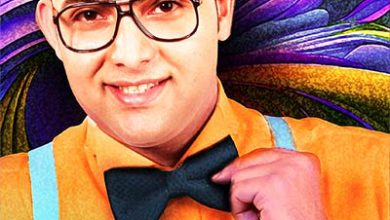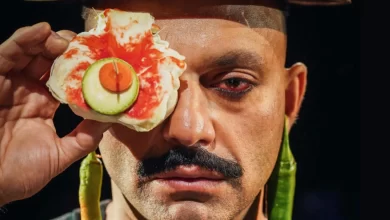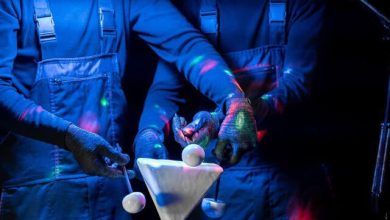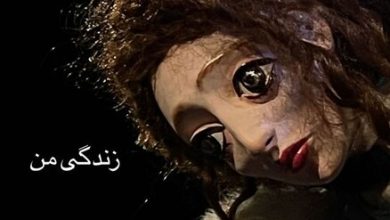I hope the youth get a chance.
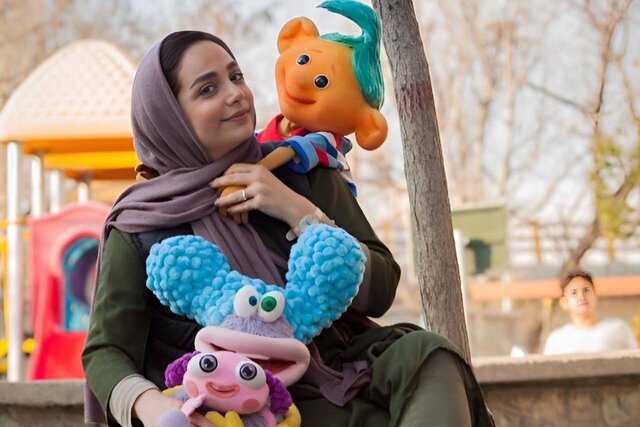
Azadeh Moayedi-Fard, who is performing the play Sorsor Sorsoreh at the Tehran Puppet Theater Festival, emphasizes that economic issues are the main reason professional puppet theater artists are staying away from the theater stage.
This artist, who has collaborated on numerous puppet projects in theater and television and is widely known for voicing the puppet “Chera,” is presenting Sorsor Sorsoreh on Saturday, December 23, at the 20th Tehran Puppet Theater Festival.
She talks about the features of this production and believes that luck is also an important factor in puppet performers’ employment.
Regarding the story of her play, she says: “Sorsor Sorsoreh is based on a short story by Mr. Hamzeh Salehi. It tells the tale of a unique stone without hands and feet who cannot slide down a slide, until a starling and her chicks help him and…”
Moayedi-Fard continues: “My overall perspective in this play is focused on children who are different in school, born with diseases, or suffer from a genetic or accidental defect, and in short, do not fit into the category of normal children. They usually suffer greatly in school and among other children because children tend to associate completeness with power.”
She adds, referring to the story of her play: “In our play, even though the stone lacks hands and feet, it is very intelligent and happy, and can offer good solutions when problems arise. That’s why this story became significant to me, because I have a duty to children who are not like typical children and may be smarter or more capable in other ways. This is the duty I fulfill in this play.”
Moayedi-Fard, who considers her play suitable for children and toddlers, emphasizes the importance of focusing on this age group: “Not only in theater but also in television projects, I work for toddler audiences because this age group is extremely important, yet unfortunately, we often overlook them. However, any artistic work can have an impact on children and toddlers similar to nutritious and delicious food, helping shape their future for the better.”
This theater instructor, who prepared her play with a group of students, says: “All the members of my group are students from the Puppet Theater Department at Sooreh University. These dear students, mostly from the 1980s generation, can be the future of puppet theater. It is important to see and not forget the young and student groups, as we too were once young and inexperienced when we started. Therefore, we must give these young people the opportunity to shine.”
Moayedi-Fard, who has always collaborated on puppet program productions in television alongside theater, explains the reasons for the withdrawal of professional artists from the theater stage: “The biggest reason is the difficulties of this work. Puppet show production is festival-dependent. As a director, you invest to get your work into the festival’s review process, and if accepted, you must spend more to prepare it for the festival. Moreover, when the theater you are scheduled to perform in has several deficiencies, you need to rent the required equipment, and these costs are not reimbursed. In the end, only passion remains to get a chance for public performance.”
She adds, referring to the situation of her own group: “Someone like me, who has a 17-member group, has to pay their wages, which are not significant. Therefore, much of the reason artists stay away from puppet theater is because of financial shortages. The main reason why puppet artists are drawn to television, home video, cinema, or even companies is due to financial issues. If theater had proper financial support, ensuring that a director and their group could receive a human wage to live on, why would they stay away from theater?”
She also emphasizes that this issue has fundamental roots: “This is not related to management, it starts before that. Unfortunately, there is no fair view of puppet art, and puppet theater is not considered a valuable art. For this reason, it always receives the smallest budget and the least equipped halls. All of this exhausts the artists of this field.”
In response to the question of what future can be envisioned for the new generation of puppet performers, she says: “If they are lucky. I was lucky that I auditioned for the Negar Estakhra project, was accepted, and after collaborating with her, I was invited to other projects. Being in the professional environment of work is not entirely related to talent and ability. Part of it depends on luck, part of it is persistence, and part of it is having a good attitude. Being energetic is important. I have tried to give my share to the student children and see them. I hope all of them find success.”
The play Sorsor Sorsoreh will be performed on Saturday, December 23, in two sessions at 17:30 and 19:30 for children and toddlers, lasting 35 minutes, at the Children’s and Young Adults’ Theater Center for Puppetry Production.

